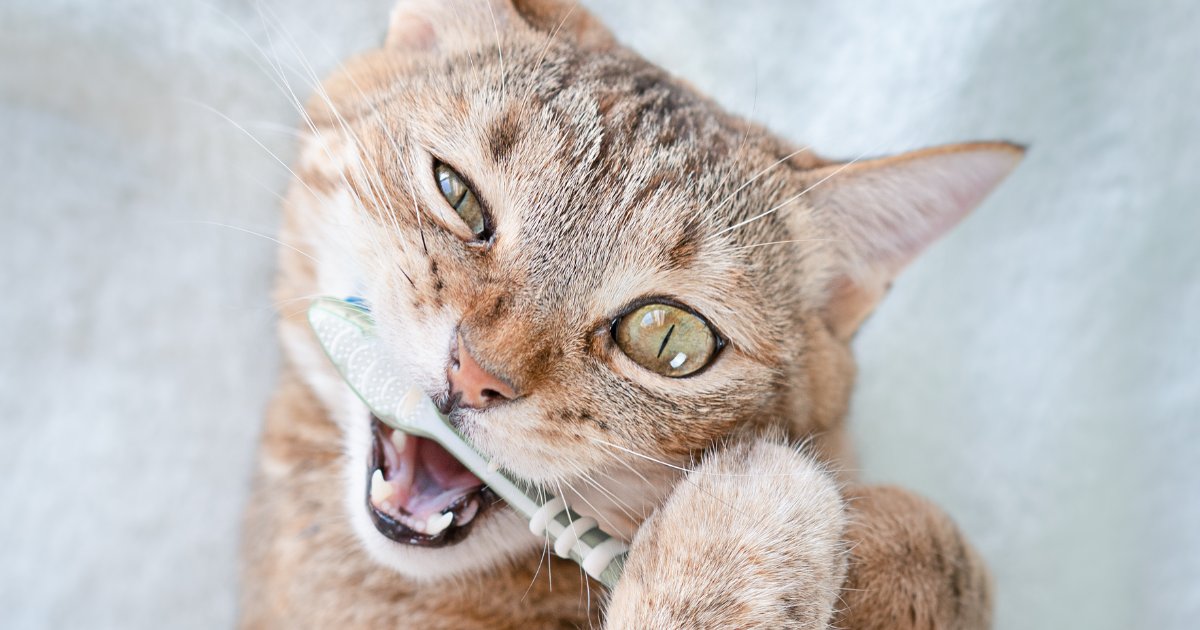Why Pet Dental Care Matters: More Than Just Fresh Breath
Many pet owners assume that bad breath in dogs and cats is normal, but it’s often a warning sign of dental disease. Just like humans, pets need regular oral care to prevent painful infections, tooth loss, and serious health issues that can affect their heart, liver, and kidneys.
Approximately 80% of dogs and 70% of cats show signs of periodontal disease by the age of three. That’s why dental health is essential—not just for fresh breath, but for your pet’s overall well-being.

The Hidden Dangers of Poor Pet Dental Health
When plaque and tartar build up on your pet’s teeth, bacteria can spread beneath the gumline, leading to painful inflammation, gum recession, and tooth loss. If left untreated, these bacteria can enter the bloodstream, affecting vital organs and potentially shortening your pet’s lifespan.
Health Issues Linked to Poor Dental Care:
· Periodontal Disease – The most common dental problem in pets, leading to pain, gum infection, and tooth loss.
· Heart Disease – Bacteria from the mouth can travel to the heart, increasing the risk of endocarditis (inflammation of the heart lining).
· Kidney & Liver Infections – The bloodstream carries bacteria from dental disease to major organs, causing long-term damage.
· Chronic Pain & Behavioural Changes – Pets with dental pain may eat less, become irritable, or avoid playing with toys.
How to Spot Dental Problems in Your Pet
Since pets can’t tell us when they’re in pain, it’s important to watch for early warning signs of dental disease:
· Bad breath (persistent, foul-smelling odour)
· Yellow or brown tartar buildup on teeth
· Red, swollen, or bleeding gums
· Difficulty eating (dropping food, chewing on one side, or avoiding hard food)
· Excessive drooling
· Pawing at the mouth or rubbing the face against surfaces
· Loose or missing teeth
If your pet is showing any of these signs, it’s time to schedule a professional dental check-up with your vet. Call us today to book an appointment.





